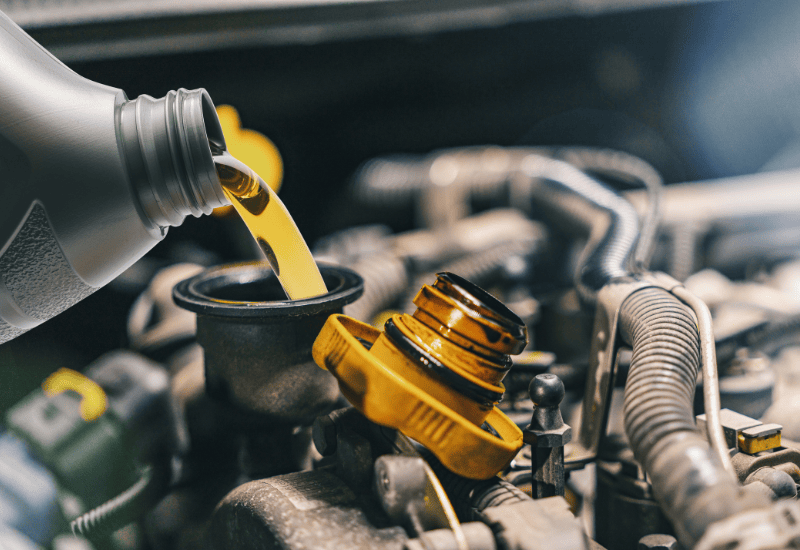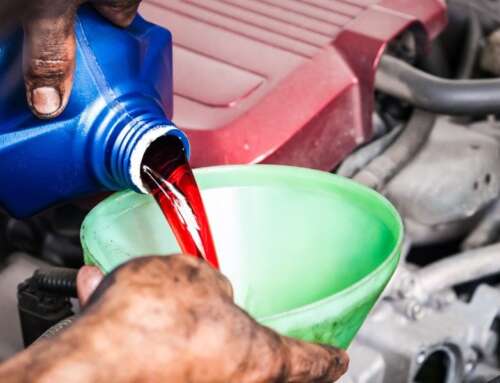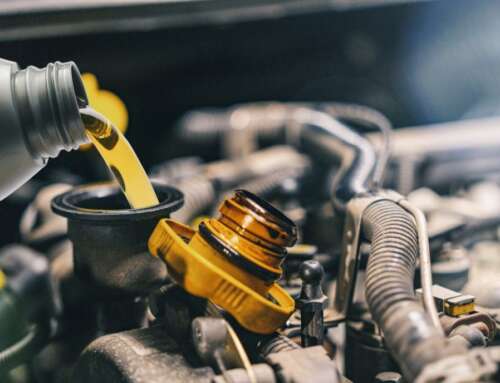High-mileage oil was originally developed by automotive manufacturers for use in automobiles with odometers that read more than 100,000 kilometers. This custom blend is a concoction of carefully selected chemicals and viscosity boosters. Its primary purpose? To tackle the distinctive challenges that come with aged engines – from wear and diminished fuel efficiency to potential oil leaks.
What is High-Mileage Oil?
High-mileage oil is formulated with a unique combination of additives and viscosity boosters, and it is intended for use in automobiles that have accumulated more than 100,000 kilometres of total mileage. This unique mix and viscosity boosters work especially well in older engines. Aging cars’ engines may wear out and leak oil, leading to problems like poor gas mileage. These problems may be avoided, however, if high-mileage oil is used. It has chemicals that seal the engine and keep leaks and oil burn-offs from happening. This also makes the seals last longer. An additional advantage is that sediment and deposits make the engine less susceptible to clogging. It is an exceptional substitute for high-mileage vehicles because of its superior performance and prolonged longevity, thus solidifying its position as a superior option.
What Oil Should You Use for a High-Mileage Engine?
When selecting oil for automobiles that have been driven for more than 100,000 kilometers, there are several considerations to ensure that the engine continues to function at its optimal level. Using high-mileage oils in older engines is supposed to increase the efficiency of running these engines, as they contain more components than usual for stopping burn-offs and oil leaks. This can usually happen in older, high-mileage engines. The owner’s manual is vital in determining the right oil for your vehicle, providing professional advice on what viscosity best suits it. Ensuring that the selected oil matches the performance standards set by the Canadian Petroleum Products Institute (CPPI) is also essential.
Many people enjoy using high-mileage synthetic oils because they clean the engine well, reduce wear and tear slowly over time, and are reliable even when it is hot outside. Listen to your engine – how old it is and its current condition. How are you taking care of maintenance per the manufacturer’s recommendations? By doing all these things, your engine will run smoothly, improve its performance, and make it last longer.
Do High-Mileage Oils Make a Difference?
“Is high-mileage oil worth it?” has been a pressing question for most car owners. For cars that have tallied over 100,000 kilometres, the answer is yes. Using high-mileage oils on such vehicles will give them added punch and life extension, making it worthwhile. Add-ons can be found in some specially formulated products, and the effects of viscosity factors are often the decider in combating ageing illnesses like engine wear or accumulation of sludge. This ensures that engines flourish and oil leaks are minimized. The likelihood of leaks decreases when engine seals are meticulously maintained with seal cleaners and other vital components. These oils clean engines effectively and prevent oil from evaporating at high temperatures, a critical factor for the well-being of older engines. Given the manifold benefits, using high-mileage oils becomes indispensable for servicing older cars.
Does it Pay to Buy Oils with Higher Mileage?
High-mileage oils cost a little more than regular oil, but the extra money will be worth it for older cars. Their unique mix prevents the usual deterioration in engines, thus improving the engine’s performance and prevents it from requiring expensive repairs. These oils help engines last longer and healthier by stopping leaks and sludge buildup. Older engines prefer high mileage lubricants, which gradually reduce the costs of maintenance and repairs, which in turn justify their higher price.
When is the Best Time to Use High-Mileage Oil?
Another popular time to replace your car’s oil with high-mileage oil is after 100,000 kilometres of travel. It would help if you also considered your driving habits, the car’s physical condition, and finally, regular maintenance is maintained. To determine when to start using high mileage oil in your specific car, refer to the owner’s handbook or consult a reliable repair shop.
How Often Should High-Mileage Oils Be Changed?
It is also good to use the right oil and attend to the recommended time changes, usually after driving around 5,000 to 10,000 kilometres. Bear in mind that this differs depending mostly on driving style and the brand of vehicle oil used. For example, cars that experience heavy traffic or have worn-out tires might require more frequent oil changes. It’s important to adhere to the manufacturer’s instructions and regularly check the quality and level of your engine oil for long-term performance.
How Do High-Mileage Oils Vary?
High-mileage oils vary from one another in terms of viscosity classifications, types of additives, and synthetic vs conventional mixes. While some oils focus on enhancing seal conditioners to minimize leaks, others may include more detergents to clean older engines completely. Use high-mileage synthetic or traditional lubricants, depending on the vehicle. In colder climates, synthetic oils offer better protection and performance. When choosing a high-mileage oil, consider these differences and choose the best option for your car.
What Other Options are Available for Older Engines?
For older engines, there are other maintenance methods and supplies available besides high-mileage oils. It is essential to have routine inspections and to replace worn-out components like filters, belts, and spark plugs on time. Additionally helpful are engine lubricating and cleaning additives. It may be advised to use oil stabilizers or heavier oil to increase lubrication in cases of severe engine wear. These need to be used sparingly and just as a stopgap, however. Ultimately, the best way to extend the life and performance of an older engine is to undertake proactive and regular maintenance. Using high-mileage oils is one aspect of an all-encompassing care strategy that should not be overlooked.
Choose Inventory Express for Quality Oils & Lubricants
When choosing high-mileage oil, consider the vehicle’s age, maintenance history, and performance criteria. Even though they cost more, high-mileage oils reduce engine wear and prevent costly repairs, making them a good investment for older vehicles driven over 100,000 kilometres. To learn more, get in touch with the industrial lubricant experts at Inventory Express today. Our team is dedicated to helping you get the job done!







